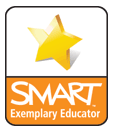Travel and lodging costs are being replaced by teleconfrences, and lately by videoconferences. That’s something that we had been used to hear from the business world. And even though they have developed that to create software to supply the demands of today’s globalized world.
However, the technology development and its applicability is being very well used and exploited in Education. Because it’s free, or very low cost, it’s entertaining and the demands of the audience are as current as they can be. Today’s students as defined by Marc Prensky, are Digital Natives, and we, today’s teachers will aspire only to be Digital Immigrants.
I typically organize debates, group discussions and other teaching-learning strategies. However, it was my desire to organize a bilingual debate between students from different parts of the world.
I’m working on that, and I wanted to share my first experience. I had a Class Discussion between my 8th grade students in Colegio San Jorge de Miraflores in Lima-PERU and 9th grade students from Hunterdon High School, a school in New Jersey-USA. Parents and students gladly received the idea and the possibility of expansion and use of 21st century skills bringing down language and distance barriers, to accomplish speaking in different languages and with people from other realities.
That was the case last week, and even though it was a short discussion, we could only stay connected for 30 minutes, it was the first out a series of discussions to be done for the rest of they year. US students practiced their Spanish and discussion skills, and Peruvian students tested their English and discussion skills as well. While they were talking there was a simultaneous webcast camera broadcasting in this channel.
The topic in discussion helped me introduce them into the biology class of Human Reproductive System, it was: do you agree with natural conception only? Or, assisted reproductive techniques as well?
My special thanks to Jon Pennington who coordinated the event from the NJ side. Here is a little sample of that:
Perhaps in 10 years we will see the first generations of digital native teachers facing the challenges of the new generaltions of digital natives. How will they be called at that time, Digital Innates?








 Linkedin/glazaro
Linkedin/glazaro Twitter/glazaro
Twitter/glazaro YouTube/sjtics
YouTube/sjtics Del.icio.us/glazaro
Del.icio.us/glazaro Technorati/glazaro
Technorati/glazaro MyBlogLog/glazaro
MyBlogLog/glazaro Blog/Gerardo Lazaro
Blog/Gerardo Lazaro
